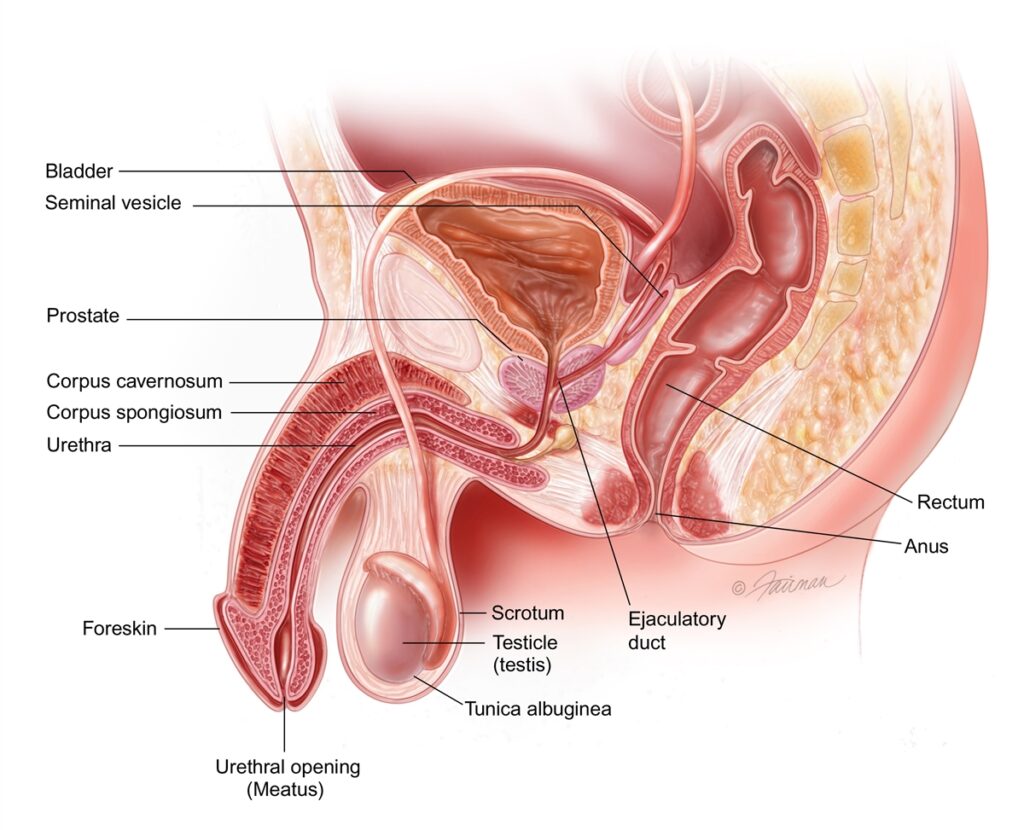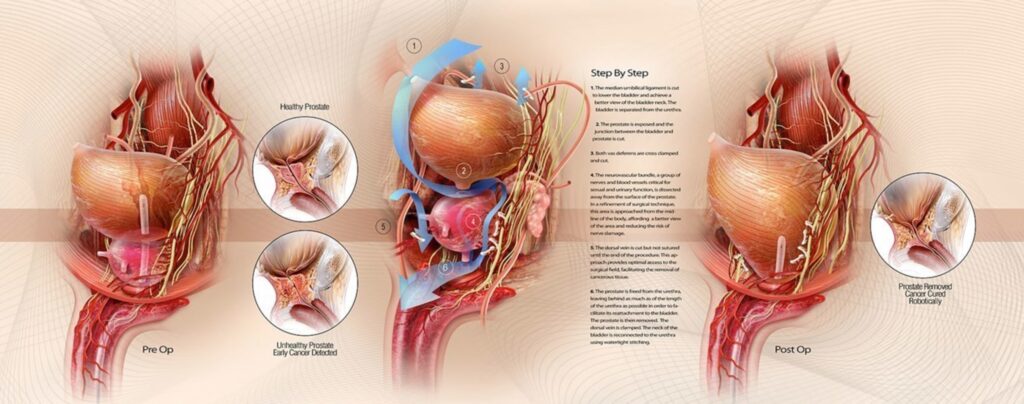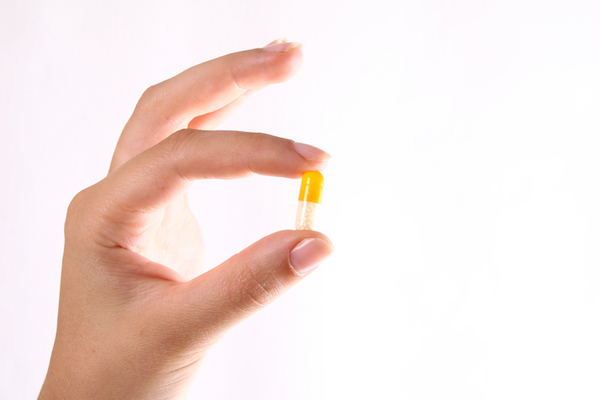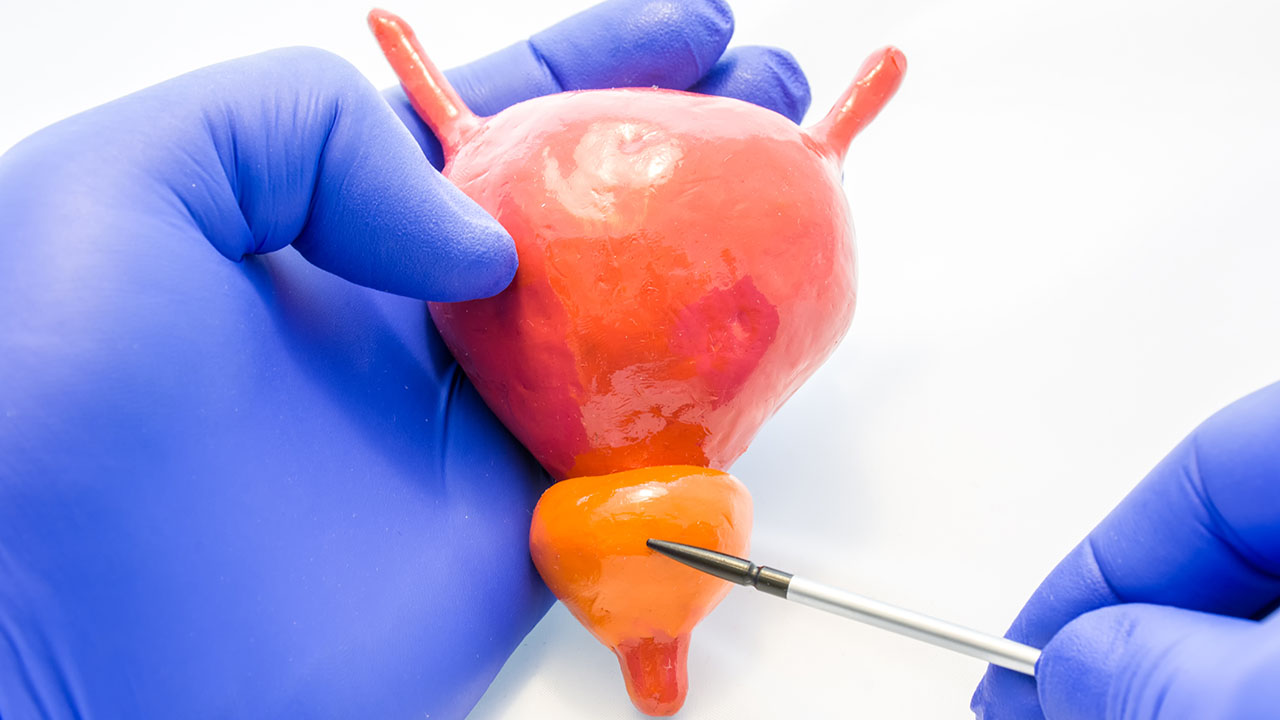There are many different types of prostate surgery, but most involve removing the prostate gland. The removal of the prostate does not affect penis size or sexual function.
The length and girth of your penis will be determined by your genetics, hormones and heredity factors. The size may also vary depending on how much blood is flowing through it at one time. The Viagra effect can make your penis seem larger because it allows more blood flow into the erectile tissue in the penis.
However, after prostate surgery you may lose up to one inch in length as fluid that normally fills the bladder moves into other parts of the body during recovery. The increased fluid may cause swelling around your belly button area or groin region that may last several weeks or months post-surgery. You should consult with your doctor about this issue before deciding whether or not to have surgery for prostate cancer
The short answer is that you may lose some length after prostate surgery, but it’s not a drastic change.
The long answer: It depends on what type of surgery you had and how much your prostate was removed.
“If the prostatic tissue is removed, then yes, there will be some loss in length,” says Dr. Aftab Ahmad, a urologist at the Medical University of South Carolina and a spokesperson for the American Urological Association. “But if it’s just contained in the prostate capsule, then no.”
However, this doesn’t mean that every guy who goes through surgery will lose his sexual function forever. There are ways to get back to normal after prostate surgery — and even make improvements along the way!
There is no evidence that penile length is affected by prostate surgery. However, studies have shown that there may be a decrease in erectile function after surgery.
In one study published in the Journal of Urology, researchers found that men who had undergone radical prostatectomy had lower scores on all three subscales of the International Index of Erectile Function (IIEF). This was compared to men who had not undergone surgery for their prostate cancer. The results show that the study participants who had undergone radical prostatectomy reported a greater number of problems with erections and orgasm, but not pain during intercourse.
The researchers also found that there were no significant differences between men who underwent surgical or non-surgical treatment for prostate cancer when it came to sexual desire and satisfaction, although they did note that these two areas were more severely affected among men who received radiation therapy instead of surgery.
Although more research needs to be conducted, it appears as though men who undergo radical prostatectomy may experience less sexual function than those who receive another form of treatment for their cancer
There are some reports that men who have prostate surgery lose length, but there are no studies to back this up.
Some men report a loss of length after having a prostatectomy, but there is no evidence to support this. It seems reasonable that the nerves in the pelvis would be damaged during any surgery on the prostate, and these nerves are responsible for sensation in the penis. The nerves may also be responsible for penile rigidity and thus could possibly lead to erectile dysfunction (ED). However, there is no evidence that this occurs with prostatectomy.
The male sexual response involves many different mechanisms, including psychological factors such as interest and excitement. A number of different drugs can cause ED or interfere with normal sexual function by affecting some aspect of brain function. One possible explanation for why some men say they lose length after surgery is that they have become depressed or anxious about their situation and therefore have lost interest in sex altogether.
How can I regain my length after prostate surgery?
After prostate surgery, many men are concerned about the loss of length and girth. This is especially true for men who were well endowed before surgery. The good news is that it is possible to regain your full erection and sexual function.
The first thing you need to do is change your mindset about your surgery. Many men worry that their penis will never be the same. This can lead to low self-esteem and depression.
It’s important to understand that not all surgeries are created equal. Some procedures are more invasive than others and will cause more damage to the nerve endings in your penis. However, there are plenty of options available for men who want to regain their full sexual function after prostate surgery.
Creams & Oils: There are several creams and oils on the market today that have been proven effective in helping men regain their size after prostate surgery. These products work by boosting blood flow into the penis so that you can get an erection again. You should apply these creams directly to your penis before sex or masturbation sessions; otherwise they won’t work as well (although they may still help). It’s important not to use too much oil in one sitting as this can lead
After prostate surgery, the length of the penis is often reduced. This is because the prostate gland has been removed and can no longer contribute to the size of the penis.
However, there are some things you can do to help with this situation.
Exercises
It is possible to regain some of your length after surgery if you make a conscious effort to do so. There are several exercises that can help you achieve this goal:
Jelqing – This exercise involves using both hands to stroke your penis up and down. It’s important not to grip too tightly or apply too much pressure, though, as this can cause damage to blood vessels in your penis. You should also never pull on your foreskin when jelqing, as this could lead to tearing of the frenulum (the thin band of tissue connecting your foreskin to your glans).
Stretching – Stretching involves pulling on your penis using a gentle upward motion while holding it at its base with one hand (or vice versa). You should stretch for about five minutes per day – ideally first thing in the morning – then hold each stretch for around 20 seconds before relaxing for 10 seconds and repeating the process until you’ve completed five repetitions
It is possible to regain your length. I would suggest that you try the exercises listed above, as well as others on this website. The best way to know if you are making progress is to measure yourself once a week and record it.
In addition, I would recommend that you purchase a jelq device such as the Jes Extender or SizeGenetics (see below). These devices use progressive tension and leverage to help restore blood flow to the penis and increase its size.
I hope this helps!
How does your body change after prostate removal?

The changes that occur in your body after surgery depend on the type of surgery you have.
If you have a radical prostatectomy, your doctor will remove the prostate and surrounding tissue. This procedure is called a total prostatectomy. A partial prostatectomy removes only part of the prostate and may be an option if you have low-risk prostate cancer.
You may have other procedures at the same time or later, such as radiation therapy or hormone therapy.
If you have a nerve-sparing radical prostatectomy, your doctor will try to preserve your nerves and blood vessels around the prostate gland. This helps prevent erectile dysfunction and urinary incontinence.
You may need one or more follow-up visits after surgery to check on healing progress and discuss any side effects or complications you’re having.
After prostate removal, the body goes through a period of recovery.
The recovery process can take anywhere from a few weeks to several months, depending on the type of surgery and your overall health.
During this time, you’ll need to take good care of yourself and follow your doctor’s instructions carefully. You may have some pain or discomfort after surgery, but this should improve over time.
Here are some things you can expect:
Pain — Prostate surgery usually involves removing tissue from the prostate gland that surrounds the urethra (the tube that carries urine from the bladder). This tissue is often swollen or inflamed because of an infection or other condition. After surgery is finished, there’s often some swelling in the area around the urethra as well as tenderness and pain when urinating. These symptoms should go away within a few days after surgery and are generally milder than before surgery. If they don’t get better quickly, talk with your doctor about how to manage them so they don’t interfere with your ability to recover.
Diarrhea — A side effect of taking painkillers after surgery is diarrhea (loose stools). Diarrhea isn’t common after prostate removal but can happen if too much medication is taken too soon after surgery
There are many changes that your body will go through after prostate removal surgery. Some are immediate and some take longer to occur.
Immediate changes
You may notice that you have less urine flow than normal. This is because the prostate was blocking the urethra (tube that carries urine from the bladder). You may also notice blood in your urine for a few days after surgery, but this is normal. A catheter is often used for a few days after surgery to drain urine out of your bladder until it becomes strong enough to hold it on its own.
Longer-term changes
You may feel more tired or weak than usual. This can happen because you’re recovering from major surgery, but also because your body has changed how it works without the prostate in place. Your urethra may be narrower than before, which can cause dribbling after urinating (this should improve over time). You may find that you need to urinate more often or at different times than before surgery — this is simply because the prostate was restricting normal flow of urine before removal.
You may have some erectile dysfunction (ED) after surgery — ED is having trouble getting or keeping an erection firm enough for sex — but this isn’t common, especially if you’re young and
After the surgery, you may feel tired and sore for a few days. You’ll need to rest for about a week. If your doctor recommends it, you may also need to wear a catheter for a short time after the surgery to drain urine out of your bladder.
You may be able to go home within 24 hours after surgery. Your doctor will probably recommend that you take over-the-counter pain relievers such as acetaminophen or ibuprofen to relieve your pain after surgery.
It’s normal to have some pain while urinating (peeing) after surgery, but this should improve in the days following the procedure. If you have trouble urinating or feel like something is still there after prostate removal, contact your doctor right away.
If you had radiation treatment before surgery, it’s possible that some cancer cells were left behind on other parts of your body. If this happens, it’s called “local recurrence” or “regional recurrence.” This can happen up to 15 years after treatment ends and requires further treatment with surgery or radiation therapy
Can you still have an erection if your prostate is removed?

While it’s true that the prostate is responsible for producing most of the fluid in semen, removing it doesn’t prevent a man from having an erection or ejaculating.
The prostate is a walnut-sized gland that produces a small amount of fluid that mixes with sperm to form semen. It sits under the bladder and wraps around the urethra (the tube through which urine and ejaculate pass).
Removing the prostate doesn’t eliminate sexual function in men. The nerves and blood vessels that supply erectile tissue are located far away from the prostate itself, so men can still get an erection even if their prostates have been removed.
The risk of impotence after surgery depends on many factors, including how healthy a man was before surgery. Some men who have had surgery may experience some temporary loss of potency while they recover, but this problem usually goes away after several weeks or months as their bodies adjust to their new circumstances.
Yes, you can still have an erection after the removal of the prostate gland.
The prostate gland is responsible for producing a small amount of fluid that mixes with semen during ejaculation. The prostate is located at the base of the bladder and surrounds part of the urethra, which carries urine and semen to the penis during ejaculation.
There are two types of surgery — radical prostatectomy (the removal of all or part of the prostate gland) and nerve-sparing surgery (partial nerve sparing). Radical prostatectomy is performed through an incision in the lower abdomen (abdominopelvic incision). Nerve-sparing surgery may involve making an incision in front of or around the rectum (perineal approach).
Radical Prostatectomy
In radical prostatectomy, surgeons remove all or part of the prostate gland through an abdominal incision. This procedure treats cancer by removing as much cancerous tissue as possible. It may also be performed as a preventative measure, if tests show that you have a high risk for developing prostate cancer in the future.
Nerve-Sparing Surgery
In nerve-sparing surgery, surgeons perform a partial removal through an incision around
The short answer is yes — you can still get an erection after prostate removal. But it will be different than before, and there are some things you should know about it.
When the prostate is removed, a man’s ability to have erections will change. Here’s how:
Ejaculation and orgasm
Ejaculation is the release of semen from the urethra during orgasm. Most men who have had their prostates removed ejaculate less forcefully than before surgery because their prostates help to produce a thicker liquid for sperm to swim in (called seminal plasma). This decreased force may make ejaculation feel different or less forceful than before the surgery.
Orgasm is the release of sexual tension that builds up during sexual activity. Erections that occur during masturbation or foreplay can often lead to orgasm without ejaculation — but not always. If you’re concerned that your orgasms aren’t as intense after surgery as they were before, talk with your doctor or another health care provider about this issue.
Erection strength
The strength of your erections depends on many factors, including:
How well the nerves and blood vessels in your penis are working
How much blood gets into your penis when it becomes erect
The prostate gland is a small, walnut-sized structure located just below the bladder. It surrounds part of the urethra, the tube that carries urine from the bladder to the penis. The prostate gland produces a fluid that contributes to semen, or male ejaculate.
Prostate cancer is one of the most common cancers in men in America. It occurs when abnormal cells form in the prostate gland and begin to grow uncontrollably. This growth can cause pain, pressure and problems with urination. Left untreated, it can lead to an enlarged prostate or even death.
The good news is that about 2 out of 3 men survive for more than 10 years after being diagnosed with prostate cancer.
There are three ways your doctor may treat prostate cancer:
Watchful waiting — In some cases, your doctor may recommend watching and waiting until you have symptoms before treating your cancer (this is called watchful waiting). Watchful waiting is usually recommended when you have a low risk of having serious problems from your cancer and if you’re less than 75 years old (or under 65 if you’re African American). If you do decide on watchful waiting, make sure your doctor follows up regularly with tests to ensure there’s no further progression of
Does Viagra work after prostate removal?

The prostate is a gland in the male reproductive system that produces fluid, which contains sperm and is expelled during ejaculation. The prostate surrounds the urethra, the tube that carries urine from the bladder.
Prostate removal is a procedure that can cure some forms of prostate cancer. It may also be done as a treatment for benign prostatic hyperplasia (BPH), a condition in which the prostate becomes enlarged and may cause urinary symptoms such as difficulty urinating (hesitation, dribbling, weak stream) and nighttime urination.
If you’ve had your prostate removed because of cancer or BPH, there’s no reason to assume that Viagra won’t work for you. You may experience some mild side effects from the drug — including headache, facial flushing or upset stomach — but these should improve with time. As long as you’re not taking other medications that interact with Viagra (such as nitrates), it should produce similar results after surgery as it would before surgery.
